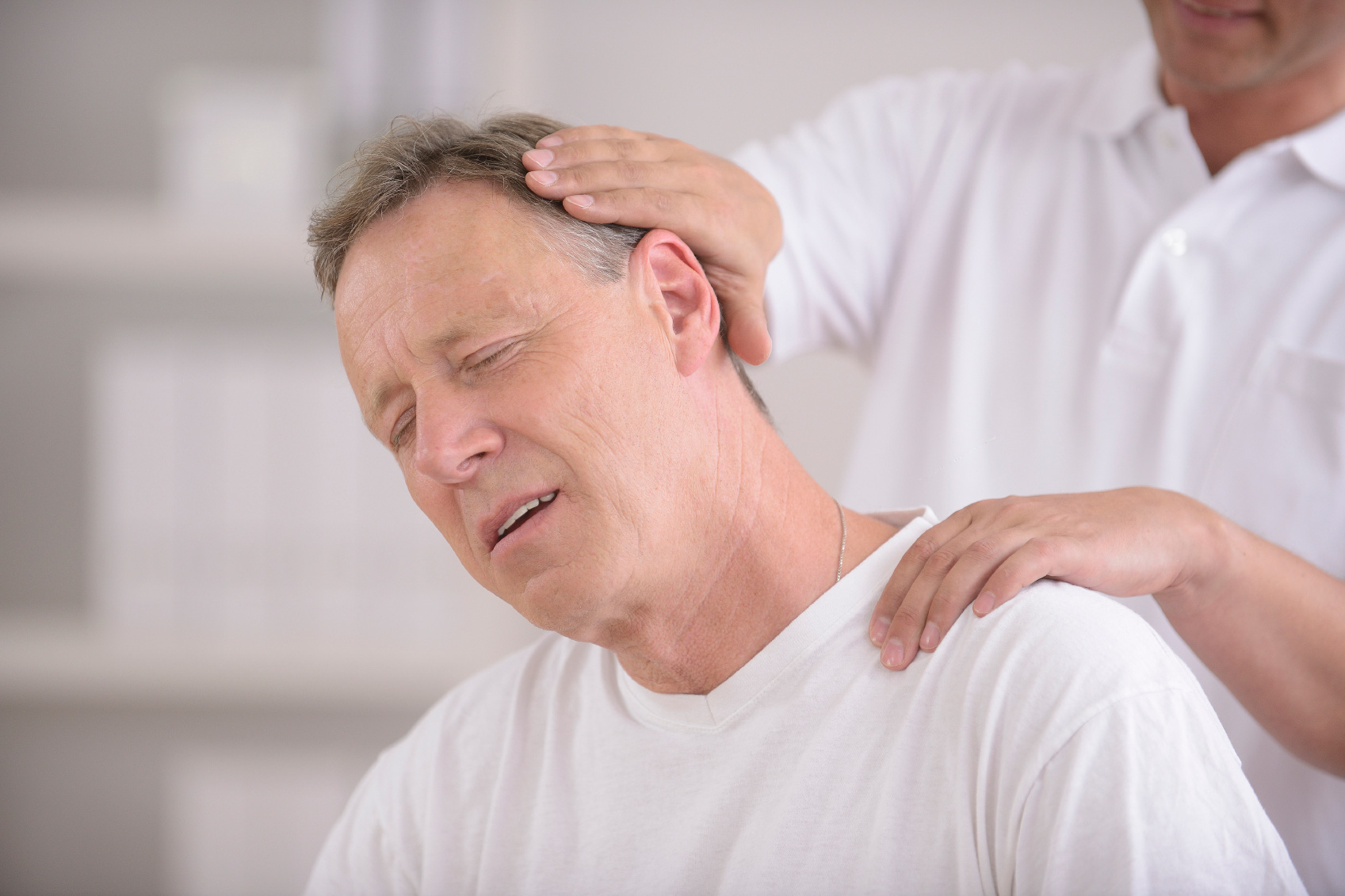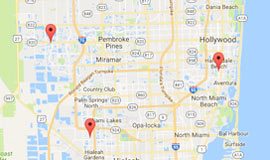Back or Neck Injuries on the Playing Field or Track
Any sport that involves repetitive motion (such as running, or soccer), a twisting motion (tennis or golf), or weight-loading at the end of the range of motion (weightlifting) may cause damage to the lower back resulting in back or neck injuries.
 The cervical spine, or neck area, is most commonly injured in sports that involve contact (such as football or rugby).
The cervical spine, or neck area, is most commonly injured in sports that involve contact (such as football or rugby).
The mid-spine (thoracic) area is less likely to be injured because it has extra support and is relatively immobile. However, sports that involve a rotation of the torso such as swimming, golf, tennis or skiing are associated with thoracic spine injuries.
Children who participate in sports are vulnerable to back and neck pain if their technique isn’t perfect, or if they are playing with youngsters who are larger or more powerful than they are.
Because children rarely complain about back pain unless there is a real problem, any mention of back or neck pain should trigger a visit to our clinic.
Back and Neck Injuries Common in Most Sport
Organized sports, especially for youngsters, get much of the attention when it comes to back or neck injuries. But in truth, any physical activity— as beneficial as it may be in other regards— may lead to back pain.
Bicycling, for instance, provides a good workout for the legs but bending forward for long periods of time can strain the back and neck muscles. Mountain biking on uneven surfaces can cause jarring and sudden compression of spinal structures.
Weight-lifting is another injury-prone sport, not just for youthful lifters but also for adults whose spinal discs may thin and become drier with age. Lifters are prone to a type of stress fracture called spondylolysis.
Golf, because of the great swing and rotation of the spine, stresses the spinal muscles, ligaments, joints and discs.
Tennis involves arching the back while serving as well as constant and abrupt starts and stops.
 Running impacts not just the lower body but also the facet joints in the spine, which may be compressed by repeated pounding. For regular runners, an even and pliable surface and good running shoes are a must.
Running impacts not just the lower body but also the facet joints in the spine, which may be compressed by repeated pounding. For regular runners, an even and pliable surface and good running shoes are a must.
Skiers should strengthen the core muscles as well as the legs, to support the spine.
Swimming, although it is a low-impact sport, also involves some twisting and arching of the lower back as well as the cervical area while taking breaths.
Athletes who try to « play through pain » risk more serious injuries. Conclusively, back or neck injuries are a serious matter which should not be overlooked while undergoing pain.
Common Questions about Back or Neck Injuries
Why do I have back and neck pain?
You may have back or neck pain for a number of reasons. The most common causes of back or neck pain include personal injuries (slips and falls), sports injuries, ergonomic trouble, poor posture, and text neck.
Back and neck injuries are common in most sports, like weightlifting, tennis, bicycling, running, and swimming.
As a result of these incidents, spinal misalignments or neck injuries may have occurred, causing pain. Furthermore, poor posture is another cause of neck pain due to strained muscles.
We provide elite orthopedic care and sports medicine in Florida here at All-Pro Orthopedics & Sports Medicine. We can help you determine why you have back and neck pain to prevent back or neck injuries in the future.
How can I avoid back or neck injuries?
One of the most important things you can do to prevent back or neck injuries is get up and move. The muscles in our bodies are designed to move. When you’re out of shape, you can feel pain even when doing simple movements.
It’s also important to stretch properly before and after strenuous activity. Also, don’t slouch and maintain good posture at all times. Take frequent breaks from sitting for long periods.
Why do so many people suffer from back or neck injuries?
It is natural for our bones and muscles to lose their tone and elasticity with age. When a spinal disc ruptures or bulges, it puts pressure on surrounding nerves, resulting in pain signals that travel to the brain. They become less able to cushion the vertebrae and are more prone to spasming or breaking. Back pain can also be caused by smoking, obesity, poor posture, and lack of sleep.
All-Pro Orthopedics and Sports Medicine in Florida don’t just treat athletes. Besides sports-related injuries, we also treat patients with arthritis, shoulder replacements, hip replacements, knee replacements, traumatic injuries, and fractures.
What are the symptoms of pain from back or neck injuries?
Symptoms associated with back or neck pain may include:
- You may experience dull, burning, or sharp back pain in one spot or more than one spot.
- Numbness or tingling in your legs above or below the knee.
- Pain along your spine (from neck to tailbone) is caused by stiffness or ache.
- Pain radiates from your low back to your buttocks, down your thigh, and into your calf and toes.
- Having a persistent ache in your back, especially after standing or sitting for an extended period of time.
What signs of serious back or neck injuries require a doctor's attention?
Neck or back pain is a very common condition that affects many people during the course of their lives. Most neck or back pain episodes will improve with time and may not need specific treatment. However, if back or neck pain persists, it is important to see your doctor. Your primary care physician can perform the initial evaluation. If symptoms do not improve, it may be necessary to see a spine specialist, like a neurosurgeon or orthopedic spine surgeon, to evaluate the causes of back pain. Reasons to see a specialist sooner include debilitating pain, pain radiating into the arms or legs, weakness in the arms or legs, numbness in the groin or perineal region, urinary retention or incontinence, fever, and trauma.
What are the benefits of back or neck injury treatment at All-Pro Orthopedic & Sports Medicine in Florida?
All our locations in Florida have a team of doctors specializing in various orthopedic conditions and performing orthopedic procedures. You can trust our doctors to prescribe medications and perform surgery to help you recover from back or neck injuries. Some of our doctors prescribe medication and perform surgeries to help you recover from back or neck injuries.













